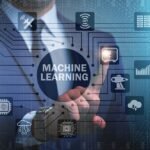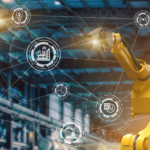Generative AI likely to augment rather than destroy jobs
An International Labour Organization (ILO) report has evaluated the impact of Generative Artificial Intelligence (AI) on job quantity and quality, revealing that rather than completely replacing jobs, Generative AI is more likely to enhance employment by automating specific tasks. The study, titled “Generative AI and Jobs: A global analysis of potential effects on job quantity and quality,” suggests that most industries and jobs will experience partial automation and will be complemented, rather than substituted, by the latest wave of Generative AI technologies like chatGPT. Consequently, the primary effect of this technology is anticipated to be changes in job quality, including factors such as work intensity and autonomy.
Among various job categories, clerical work emerges as the one most exposed to technological transformation, with around 25% of tasks highly exposed and over 50% with medium-level exposure. On the other hand, occupational groups like managers, professionals, and technicians show only a small portion of highly exposed tasks, with about a quarter exhibiting medium exposure levels.
The report’s global perspective highlights disparities in the impact across countries of varying development levels, linked to existing technological gaps and economic structures. High-income countries face a potential automation impact on about 5.5% of total employment, while the risk in low-income countries is limited to approximately 0.4% of employment. However, the potential for augmentation through Generative AI is relatively consistent across countries, suggesting that with appropriate policies, this technological shift could benefit developing nations significantly.
The study also addresses gender-specific impacts, revealing that women are likely to be affected more by automation, owing to their higher representation in clerical roles, particularly in middle and high-income countries. As clerical jobs have historically been a significant source of female employment during economic development, the adoption of Generative AI might prevent certain clerical positions from emerging in lower-income countries.
The report emphasizes that the socioeconomic consequences of Generative AI will hinge on the management of its implementation. It underscores the necessity of policies that facilitate a structured, equitable, and inclusive transition. Key factors include empowering workers’ voices, providing skill training, and ensuring sufficient social protection measures. Without these measures, there’s a risk that only a select few well-prepared countries and market participants will reap the benefits of this new technology.
The authors emphasize that the outcomes of this technological transition are not predetermined; human decisions drive the incorporation of such technologies, and it’s humanity’s responsibility to guide the process of transition.


































